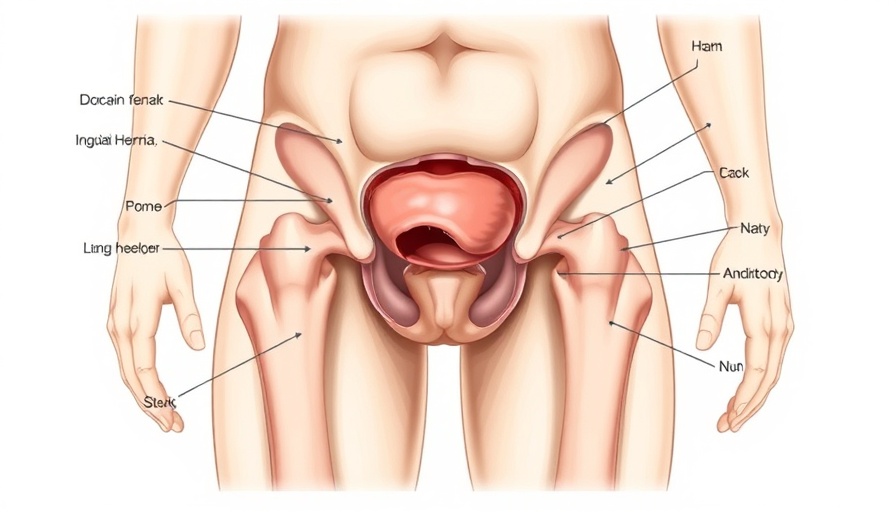
Understanding Inguinal Hernias
An inguinal hernia occurs when tissue, typically a part of the intestine, protrudes through a weak spot in the abdominal muscles. This condition commonly affects men but can also impact women. Knowing more about this condition can empower individuals to seek timely medical assistance and initiate appropriate lifestyle changes.
Historical Context and Treatment Evolution
The treatment of inguinal hernias has significantly evolved over the years, progressing from simple surgical procedures to more advanced techniques that emphasize minimally invasive laparoscopic options. Historically, hernia repair was a daunting surgical procedure, but innovations in medical technology have transformed how these conditions are treated, making recovery times more favorable and complications less frequent.
Building Awareness: Why It Matters
Understanding hernias is crucial, not just for those afflicted, but for everyone. By promoting knowledge about inguinal hernias, communities can better support their members in seeking early intervention, reducing the risk of serious complications. Knowledge empowers healthier discussions surrounding symptoms and treatment options.
Incorporating Holistic Remedies
While medical intervention is often necessary for hernia repair, holistic remedies can provide supportive care for recovery. Nutritional wisdom plays a vital role in strengthening the body’s resilience. Eating a balanced diet rich in fiber can improve digestion and lower the risk of constipation, which is a factor in hernia formation. Integrating physical activity—specifically core strengthening exercises—when appropriate can also aid recovery. However, it's essential to consult with a healthcare provider before making changes to exercise routines.
Practical Insights for Recovery
Those undergoing surgery for an inguinal hernia should embrace a holistic approach to recovery. Staying hydrated, practicing mindfulness techniques, and ensuring ample rest can enhance the healing process. Engaging in gentle activities, such as walking, can promote circulation and prevent complications while supporting overall well-being.
Future Insights: What Lies Ahead
The future of hernia treatment holds promise with ongoing research into non-surgical options. Advances in materials used for mesh implants, personalized surgical techniques, and post-operative care strategies are evolving. As science advances, individuals can look forward to even more effective solutions that integrate both traditional and holistic approaches to health.
Encouraging Resilience through Stories
Many individuals find themselves at a crossroad upon diagnosis. Sharing personal recovery journeys can inspire those facing similar challenges. The road to recovery might be daunting but telling stories of resilience fosters connection and understanding within communities, bringing support to those in need.
 Add Row
Add Row  Add
Add 



 Add Row
Add Row  Add
Add 
